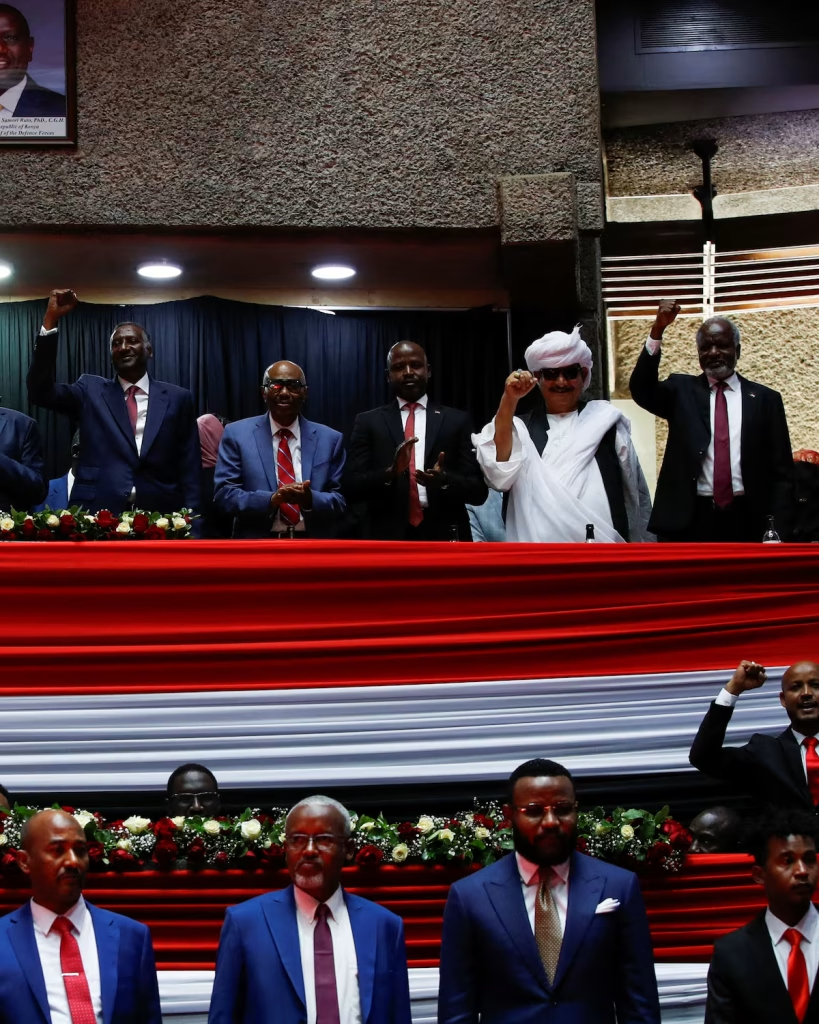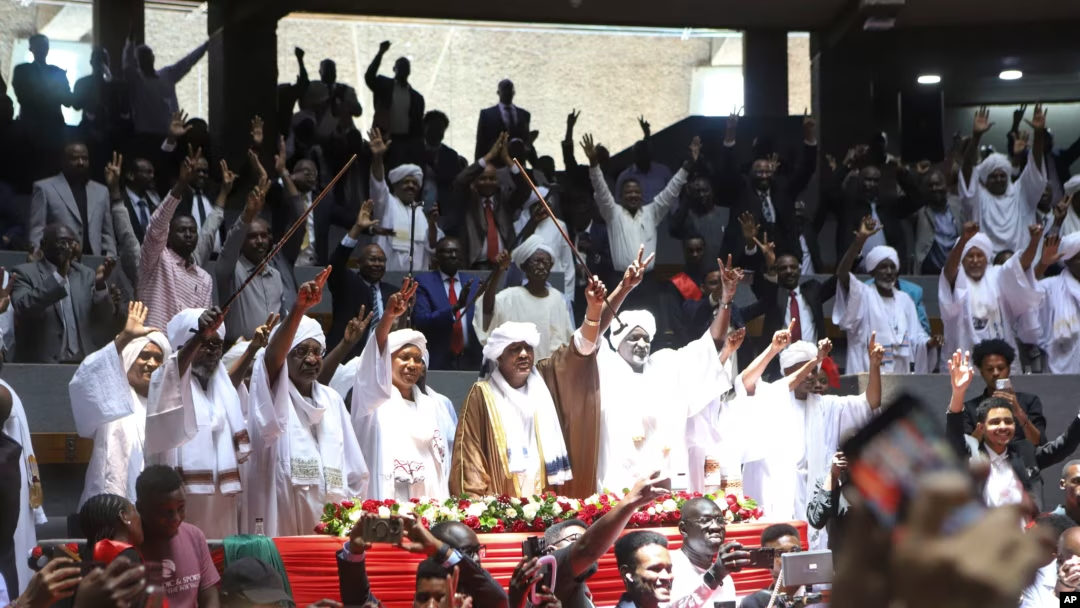Sudan’s paramilitary Rapid Support Forces (RSF), along with its allies, have signed a charter to establish a parallel government, despite warnings that the move could further divide the war-torn nation.
Sources confirmed the agreement, stating that the charter aims to pave the way for a “government of peace and unity” in regions controlled by the RSF and rebel factions.
The signing took place in Nairobi, Kenya, after numerous delays.
Among the signatories were Abdelaziz al-Hilu, leader of the Sudan People’s Liberation Movement-North (SPLM-N), which controls parts of Southern Kordofan and Blue Nile states, and Abdel Rahim Daglo, RSF commander Mohamed Hamdan Daglo’s brother.
Notably, Mohamed Hamdan Daglo was absent from the ceremony.
The charter calls for a secular, democratic, and decentralised state, emphasising freedom, equality, and justice.
It also proposes the creation of a unified, professional national army that reflects Sudan’s diverse makeup.
The charter aims to end the ongoing conflict, secure humanitarian aid access, and integrate armed groups into a unified force.

UN, Arab League Raise Concerns Over Signing of Charter
This development follows a division within Sudan’s largest civilian coalition, Taqadum, which split over the new government formation.
The split led to the emergence of two factions: TASIS, aligned with the RSF, and Sumud, led by former prime minister Abdallah Hamdok.
One of the charter’s signatories, Alaa El-Din Nuqd, emphasised the need to address gaps in essential services in RSF-controlled regions, such as access to new banknotes and document processing.
The introduction of new currency by Sudan’s army in December was seen as an attempt to economically weaken the RSF and further deepen divisions.
The signing has sparked a backlash from Sudan’s army and its allies.
Abdel Fattah al-Burhan, Sudan’s army chief, had previously vowed to form a war cabinet in response to RSF advances in Khartoum and central Sudan.
Additionally, Kenya’s hosting of the event has drawn criticism from Sudan’s government, which recalled its ambassador to Nairobi.
Internationally, the United Nations and the Arab League have expressed concern, warning that the creation of a rival government could exacerbate the crisis and further fragment the country.
The conflict, triggered by disputes over the integration of the RSF into Sudan’s military, has resulted in tens of thousands of deaths and widespread atrocities.
The war has left Sudan deeply divided, with the army controlling the north and east, while the RSF holds much of Darfur and the southern regions.


 Trending
Trending 